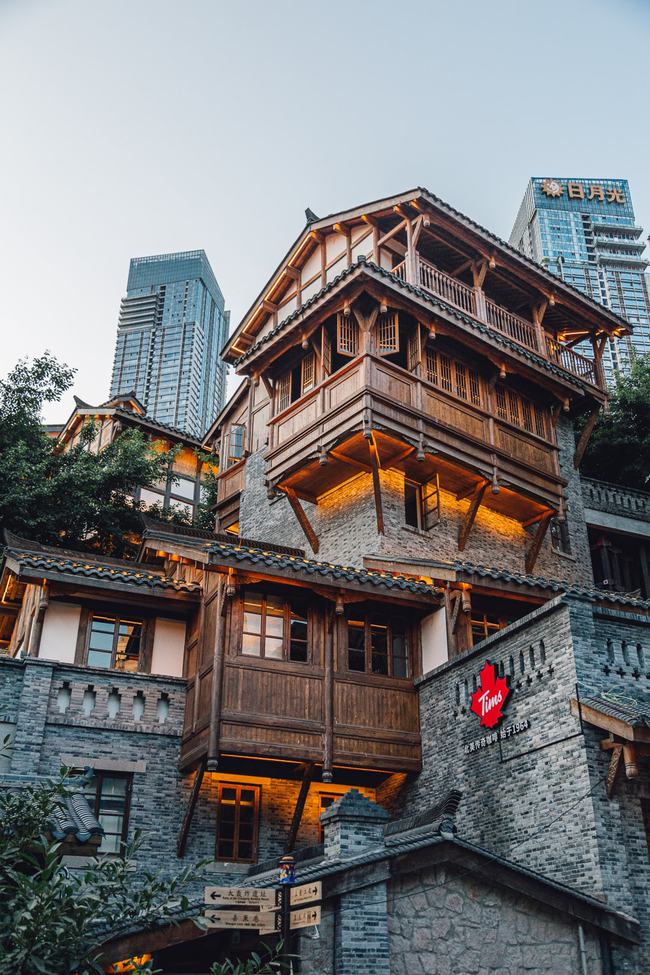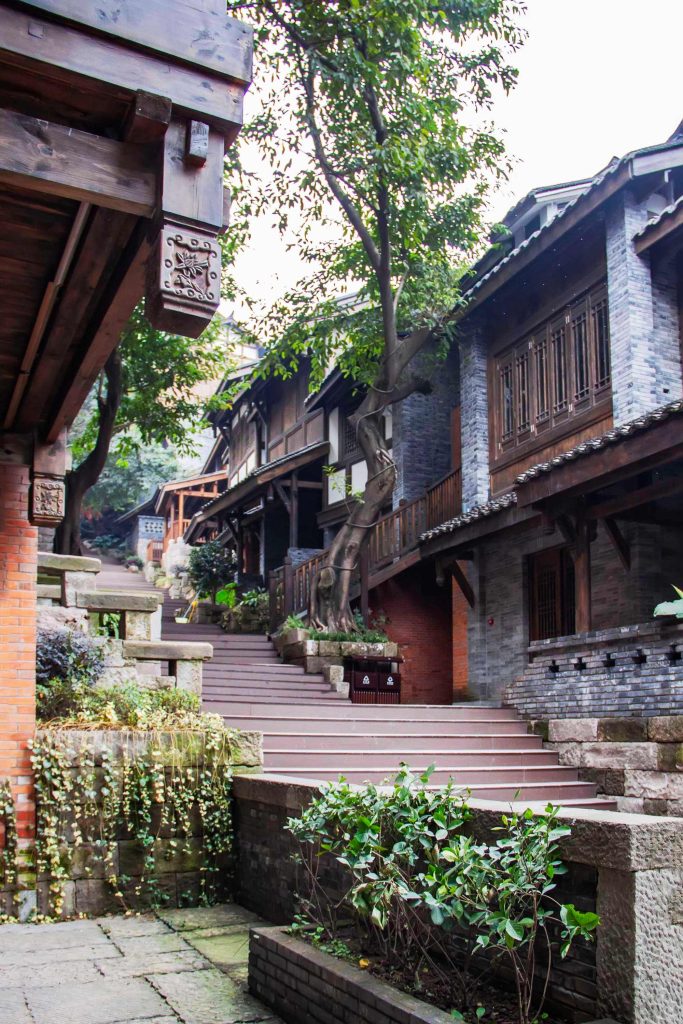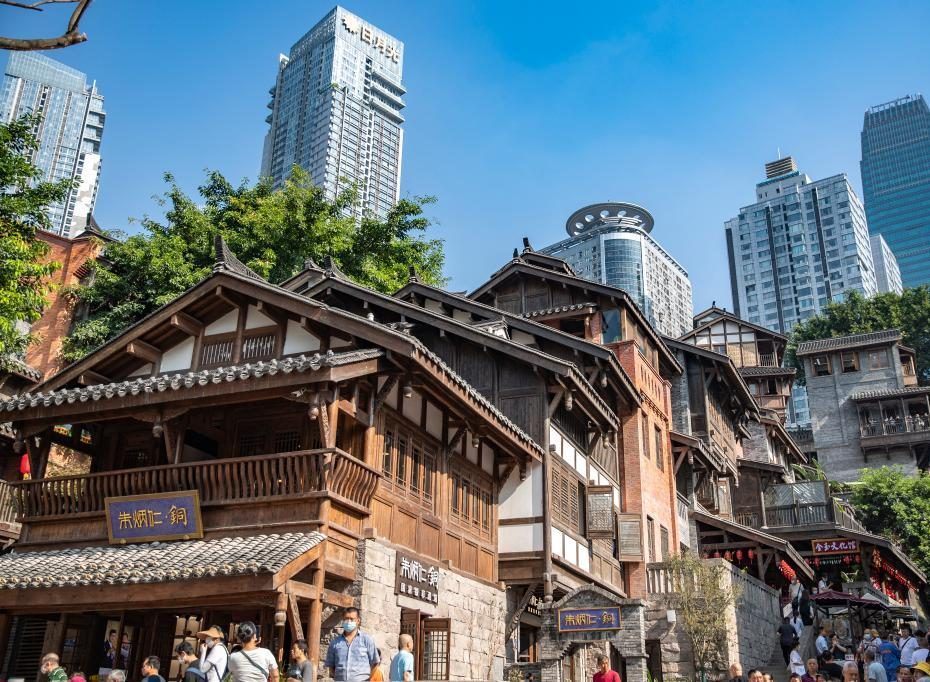In the charming mountain city of Chongqing, there is a place like a link in time that connects the past with the present: the Shibati of Chongqing. For foreigners, this is not only a tourist attraction, but also a window to traditional Chinese culture and the unique cityscape of Chongqing.
Echoes of History: Names and Changes
The name “Shibati” contains an ancient story. According to one theory, during the Ming and Qing dynasties, the residents of the neighborhood relied on a well for their daily water supply, and the stone staircase from the well to the walkway into the city was exactly eighteen steps, hence the name. Another theory is that the “Lazy Slope” stone stairway built in the Qing Dynasty, with more than 200 steps divided into eighteen tiers, each with a small platform for pedestrians to rest their feet, hence the name “Shibati”. From its origins in the Three Kingdoms period, to the stone staircase official road connecting up and down in the Southern Song Dynasty, to the Ming Dynasty when it was built around four city gates, to the end of the Qing Dynasty when it became the central hub, to the war period when it housed many paupers and refugees, to the present day when it is being remodeled and opened up, the Shibati has witnessed the historical changes of Chongqing over thousands of years, and each stone slab tells the story of the years.

Architecture: A unique display of mountainous features
The architectural style of the Shibati is unique, blending the Ming and Qing dynasties with European style, and is an outstanding example of mountain architecture. The buildings here are overlapping and staggered, and there are various types such as foot-hanging buildings, bundled houses and bucket houses, as well as the mixed styles of bamboo walls, white-gray walls, stone walls and “dry barricades”. Standing in the Shibati, it is as if you can see the living scenes of Chongqing people in the past and feel their wisdom of living in harmony with nature. These buildings are not only living spaces, but also carriers of Chongqing’s history and culture, showing the city’s unique charm.
Cultural Connotation: Marketplace Fireworks and Traditional Skills
The Shibati is a concentrated manifestation of Chongqing’s marketplace culture. Here, you can feel the strong living atmosphere, hear the friendly conversations in Chongqing dialect, and see the old people leisurely drinking tea and playing chess. Meanwhile, many traditional skills are preserved here, such as Shu embroidery, paper-cutting and wood carving. Walking into the small stores on the street, craftsmen are concentrating on their creations, and you can admire these exquisite handicrafts up close, or even experience the production process yourself to feel the charm of traditional Chinese skills. These cultural elements are intertwined with each other, constituting the unique cultural atmosphere of Shibati.

Culinary Experience: Chongqing on the Tip of Your Tongue
When you come to Shibati, you must taste the local cuisine. Chongqing hot pot is naturally a must, with hot, spicy and fragrant pot base, swirling with all kinds of ingredients, which makes people want to eat more. In addition to hot pot, there are also special snacks such as hot and sour noodles, small noodles, and small soup dumplings in the mountain town. The hot and sour noodles, the spicy noodles, and the soft and sweet dumplings are all filled with the flavor of Chongqing. Walking on the streets of Shibati and savoring these delicacies is an unforgettable journey of the tongue.
Mixture of Modernity and Tradition
Today’s Shibatidi has incorporated modern elements while preserving tradition. The old buildings have been restored and given a new look, while many modern stores, cafes and restaurants have been opened. Here you can feel the flavor of traditional culture and enjoy the convenience of modern life. At night, the Shibati is brilliantly lit and bustling with activity, where tradition and modernity are perfectly blended, displaying a unique charm.

Chongqing Shibati is a place full of stories and charms. It carries the history and culture of Chongqing and shows the unique style of the mountain city. Whether you are interested in history and culture or want to experience the local life, the Shibati is an excellent choice. Foreigners are welcome to come to Chongqing, to the Shibati, to start an unforgettable cultural journey.
